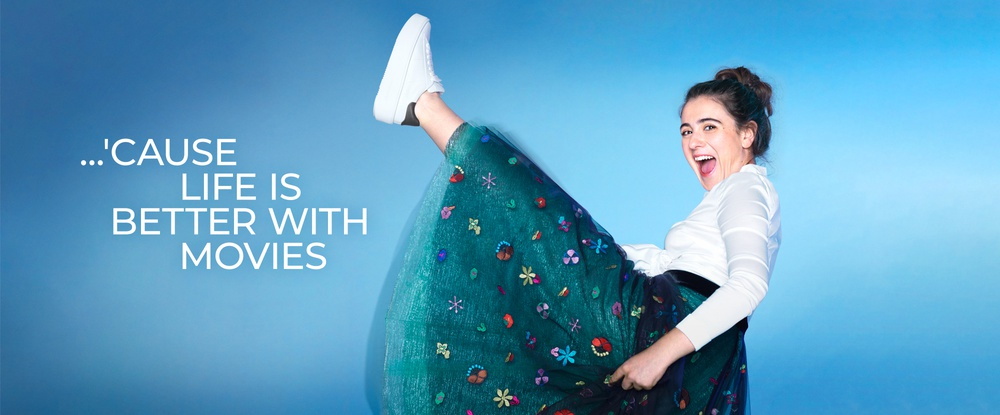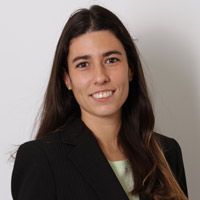
Making waves with innovative cinema

The Zurich Film Festival (ZFF) is little known in Europe. In Hollywood, however, it enjoys prestige. Six of the Best Picture Oscar winners in the past ten years had their premiere in Zurich. This year the festival is presenting the newest generation of Spanish filmmakers.
“We are the biggest German-language autumn film festival in the world,” says artistic director Christian Jungen. Over the course of its 18-year history, the ZFF has established itself on the international film scene and forged its own identity. While it may lack the same fame in Europe as other major festivals like Cannes, San Sebastián or Locarno, it enjoys great prestige in Hollywood.
The festival wants to promote exchanges between emerging directors, the film industry and the general public. The ZFF is often a springboard to fame for the new faces of cinema.
However, it is not without its critics. Since its inception in 2005, the ZFF has struggled to convey a concrete creative approach. Some Swiss film experts consider the festival to be merely a show of Zurich arrogance. Supporters of the ZFF, however, retort that Zurich has the film festival that a big city deserves.

Criticism aside, audiences at the festival have grown year after year. In 2021, despite the pandemic, 102,000 film buffs attended, an increase of 50% over the previous year, making it the largest film festival in Switzerland for the second year in a row.
In response to the ZFF’s detractors, Jungen defends the identity of the festival, which he says has been committed to quality and independent cinema since its inception and has always supported new Swiss and international talent.
“It’s not an easy task,” Jungen told SWI swissinfo.ch. “We look for gems among the more than 3,000 films we receive. Many film directors who started out at the ZFF have gone on to become established – for example, Cary Joji Fukunaga, who presented his debut feature No Name in 2009 and returned last year as director of the James Bond hit, No Time to Die.”
One of the most eagerly awaited films at the ZFF this year is the world premiere of Der Nachname, the latest comedy by renowned German director Sönke Wortmann. The ZFF will also host the European premiere of the first film adaptation of Erich Maria Remarque’s novel Im Westen nichts Neues (All Quiet on the Western Front) featuring actor Daniel Brühl. This is a prestigious Netflix production, which arrives in Zurich accompanied by a large entourage.
The ZFF is the second-largest festival in the German-speaking world after the Berlinale (Berlin Film Festival). It is often a platform for up-and-coming filmmakers from all over the world.
The festival has established itself on the Swiss film scene, but has yet to find its true calling on the international stage.
The films screened in each main category (Focus Competition, Feature Film Competition and Documentary Competition) will compete for a Golden Eye, the festival’s main prize, which will be awarded by an independent jury.
The Golden Eye is endowed with a cash prize of CHF25,000 ($25,546).
The ZFF is coming of age this year. The 18th edition of the festival takes place from September 22 to OctoberExternal link 2.
‘New World Vision’
Every year, the “Neue Welt Sicht” (New World Vision) section offers a foreign country the opportunity to participate as a special guest.
This year, Spain is in the spotlight. The section presents the latest generation of Spanish filmmakers who are making waves with their innovative cinema. These young directors tell very personal stories against the backdrop of a global economic crisis.
The ZFF presents a multi-faceted programme ranging from the big city lights of Madrid and Barcelona to the cultural and linguistic frontiers and the coastal and rural regions of Spain. Major hits, such as the big winner at the most recent Berlinale, Alcarràs, and the surprise art-house hit Cinco Lobitos (Lullaby), rub shoulders in this section with new discoveries and festival gems.
“There is a new generation of Spanish filmmakers emerging in the shadow of greats such as Pedro Almodóvar and Carlos Saura, who feel the need to tell the story of the social tensions in their homeland and tackle past chapters in Spanish history,” says Jungen. One of the most outstanding films this year is Modelo 77, by Alberto Rodríguez, which begins in 1977 after Franco’s death, and shows how the former security forces continued to control the country’s prisons and harass political prisoners.
This is the setting for Maixabel, a film by Icíar Bollaín that formed part of the programme of last year’s festival. It tells the story of the complex conflict caused by the terrorist group ETA, one of the most difficult episodes in Spain’s recent history.
The film focuses on a project of forgiveness between the condemned terrorists and victims of the ETA attacks. Actress María Cerezuela won a Goya (Spain’s national film award) for best new actress in 2022 and graces the poster of this year’s ZFF.
“Being part of this film marked my life forever,” says the young actress, speaking from Biscay in northern Spain. “It is a very necessary film in this individualistic world, incapable of listening or empathising with the person next to you.”
“The end of ETA marked a before and after in the history of our country,” she adds. “Spanish cinema today is experiencing a moment of reflection. Stories are being told that are down-to-earth and close to home and that connect with a large audience.” Female characters are also increasingly being portrayed in a less sexist manner, Cerezuela points out.
A full programme
This year’s ZFF programme features directors such as Carla Simón with Alcarràs, Carlota Pereda with her film Cerdita, Alauda Ruiz de Azúa with Cinco lobitos, Pilar Palomero with La Maternal, Clara Roquet with Libertad and Andrea Bagney with Ramona.
But that’s not all. Rodrigo Sorogoyen’s film, As Bestas, has also attracted the critics’ attention. This thriller set in a rural area of Galicia leaves no one indifferent. The plot generates a crescendo of tension that accompanies the audience until the end.
The director Juan Diego Botto arrives with a social drama, En los márgenes (On the Fringe), made up of three intertwined stories. For this, he has counted on the performance of Penélope Cruz and Luis Tosar, among others. His film recently premiered at the Venice Film Festival.
Miguel Ángel Blanca’s documentary, Magaluf Ghost Town, also deals with the social problems of modern-day Spain. The town of Magaluf in Mallorca exemplifies how Europe’s low-cost tourism model plays out in real life from the perspective of locals and tourists.
Adrián Silvestre’s feature, Mi vacío y yo (My emptiness and I), is a drama that aims to raise awareness about transsexuality. Finally, suspense plays a key role for Jonás Trueba, who prefers to send a clear message with his film, You have to come and see it, without giving any further explanation.
Alcarràs
Finally, Alcarràs by director Carla Simón was recently awarded the Golden Bear at the Berlinale in a unanimous decision by the jury – by no means an easy feat.
Alcarràs tells the story of a family that reflects a rural world which seems to be economically and socially devalued. After 80 years cultivating the same land, the Solé family reunites to harvest their last crop together, as their land will be replaced by solar panels.
Family dynamics play a key role in Simón’s films, as she demonstrated in her previous feature, Estiù 1993 (Summer 1993), for which she won the Goya for Best New Director.
“Spanish cinema is [experiencing] a very sweet moment,” Simón told SWI swissinfo.ch. “There is a great crop of independent filmmakers who are having an impact on the international film scene. The fact that Spain is a guest country in Zurich is a great honour and a sign of this.”
Edited by Mark Livingston

In compliance with the JTI standards
More: SWI swissinfo.ch certified by the Journalism Trust Initiative




























You can find an overview of ongoing debates with our journalists here . Please join us!
If you want to start a conversation about a topic raised in this article or want to report factual errors, email us at english@swissinfo.ch.